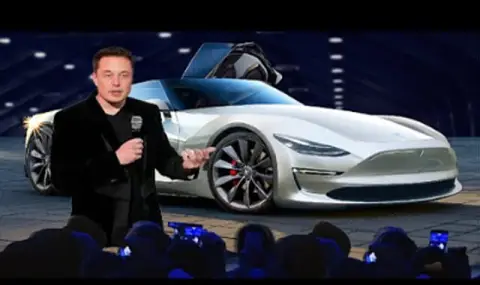Electric vehicle (EV) pioneer and founder of the multibillion-dollar enterprise Tesla, Elon Musk, has announced a shocking transition for his company. As we know Tesla is a leader in electric cars and for that reason it is shocking to say the least that Musk has announced that the company will shift its focus to hydrogen energy.
Once the “dumbest fuel”, now the fuel of the future?
Musk has already voiced his criticism of hydrogen as a vehicle energy. In a television interview, he stated that hydrogen fuel is “the dumbest thing”. However, growing competition from China's BYD EVs has apparently made him rethink things. The decision is most likely a strategic move to remain competitive as electric cars become more common on the road and his company gradually begins to lose ground.
Thus, the billionaire concludes that developing and researching fuel cell technology is not only an inevitable decision, but will diversify Tesla's product offerings and keep them at the top. The possibilities of fuel cell technology are incredibly lucrative. Not only is hydrogen energy zero-emissions with a water-only byproduct, but it would open up a world of possibilities for harnessing pure hydrogen to keep the fleet in line with environmental norms and targets.
The first fuel cell-powered car is expected to debut in 2026
Not only is Tesla's hydrogen research a surprise, but the reveal date for their first model is fast approaching. Tesla has set an ambitious date for the launch of their first hydrogen-powered car - by 2026. The model is named "Model H" and will use advanced fuel cell technology. Tesla plans to advance and solve problems with hydrogen storage and related infrastructure.
There are currently fewer than 17,000 hydrogen fuel cell vehicles in the US, all of them in California. California is the only US state with a network of charging stations selling hydrogen. For hydrogen-powered cars to become more widespread, new infrastructure will need to be developed to support the new technology. Previously, Honda, Hyundai and Toyota were the only companies to offer production cars powered by hydrogen.
How does a hydrogen fuel cell car actually work?
The electric motor in hydrogen fuel cell cars is made using the same technology used in standard electric cars. The difference is that instead of being powered by a battery, hydrogen fuel cell vehicles are powered by fuel cells where pure hydrogen passes through a membrane to combine with oxygen from the air. This produces the electricity needed to run the engine. Water vapor is the only byproduct of the process. This requires high-pressure tanks made of carbon fiber and quite a few hydrogen refueling stations.
The problem is that in order to create pure hydrogen to power the fuel cell, we would need to use a significant amount of energy to harness that hydrogen from a compound. Pure hydrogen itself is very difficult to find in nature. We usually find it associated with another element as it has a strong tendency to associate with anything. This is what makes it such a good energy carrier. However, this cracking process will release carbon dioxide as a byproduct.
The possibilities of hydrogen technology are attractive, but there is still a long way to go in terms of a hydrogen-only car. Toyota's current hydrogen vehicles include a battery that helps the car accelerate. Hydrogen power works best at constant speeds, not at varying speeds at which a vehicle is traveling.
Tesla has long dominated the electric car market with its innovative and futuristic technology. If Musk has really decided to "turn the tables", then Tesla will surely make a significant contribution to hydrogen fuel cell technology. We may see a vehicle powered by pure hydrogen on the road sooner than we think.
